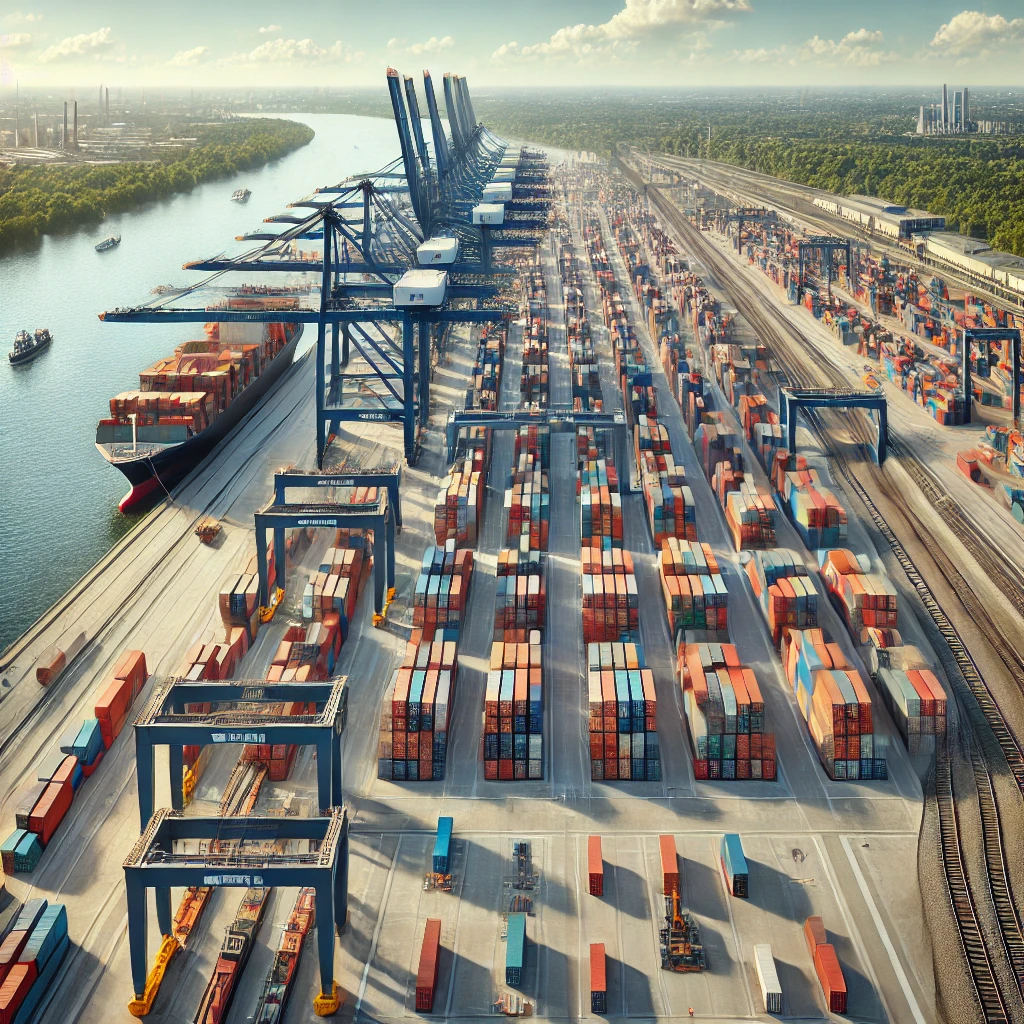Containers instead of coal: Duisburg Gateway Terminal opens
The Duisburg Gateway Terminal (DGT) has started work, marking an important milestone for freight transport in Europe. A state-of-the-art container terminal is now being built on the former site of the coal port in Duisburg, which served as a transshipment point for fossil fuels for decades. This will further advance structural change in the Ruhr area by using the area sustainably for freight transport.
A milestone for European freight transport
The DGT is not only the largest terminal of its kind in Europe, but also a central hub for the Silk Road connections between Europe and China. With the commissioning of the terminal, Duisburg's role as a logistics hub will be strengthened, especially for trade along the “New Silk Road”. The terminal's capacity is impressive: the aim is to handle up to 850,000 containers annually.
Sustainability in focus
A special feature of the Duisburg Gateway Terminal is its focus on sustainability. The entire system is designed to be emission-free and is operated exclusively electrically. Cranes, forklifts and other technical equipment work emission-free to significantly reduce CO₂ emissions. It is also planned to operate the terminal entirely with green electricity, which will make an important contribution to environmental protection and the sustainability of the project.
Cooperation and technological innovation
The Duisburg Gateway Terminal was made possible through the collaboration of several strong partners. Companies such as Duisburger Hafen AG (duisport), Hupac and COSCO have contributed their expertise to create an innovative and future-oriented logistics center. In addition to pure handling capacity, the terminal also offers numerous digital services to make container traffic more efficient and transparent.
Impulses for the regional economy
The new terminal is not only important for international trade, but also an important stimulus for the regional economy. It creates jobs and offers companies in the Ruhr area an efficient infrastructure for freight transport. Thanks to its connection to rail, road and waterways, the DGT is excellently networked and offers optimal conditions for the handling and onward transport of goods.
Future prospects
With the commissioning of the Duisburg Gateway Terminal, an important step is taken in the transformation of the Ruhr area into a sustainable and future-oriented economic region. The importance of coal is decreasing, while freight transport and the logistics industry are becoming increasingly important. Through the combination of modern technology, emission-free operations and strategic location, the DGT will remain a central player in international trade.
You can find more information about the Duisburg Gateway Terminal under the links.
Source: NMWP.NRW
